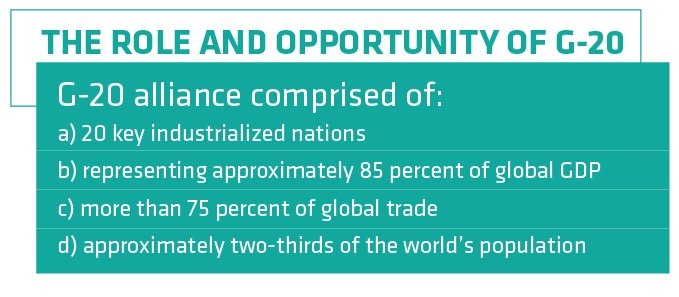The burning of fossil fuels continues to be a significant driver of climate change, contributing to record-breaking heatwaves worldwide
Major fossil fuel producers, including Saudi Arabia and Russia, have voiced opposition to a proposal aiming to triple the renewable energy capacity of G20 nations by 2030, according to three sources. China, South Africa, and Indonesia, as well as India, the current holder of the G20 presidency, have also taken a stance against the plan. The renewable targets were suggested by the G7 countries during a G20 ministerial delegation meeting in Goa, India, based on a report by the International Energy Agency (IEA).
G20 energy ministers clash over Ukraine conflict and energy security
Russia and Saudi Arabia have firmly opposed proposed targets to increase non-fossil fuel capacity and set deadlines for renewable energy adoption. Both countries argue that natural gas plays a crucial role in their energy mix. The discussions also extended to hydrogen production, with some members advocating for the term “low-carbon hydrogen” to include gas-produced hydrogen with a lower carbon footprint than coal.
Meanwhile, during the G20 meeting, energy ministers found themselves in disagreement over the language used to describe the conflict in Ukraine. Russia referred to it as a “special military operation” and expressed concerns about attacks on the Nord Stream gas pipeline to Germany. This marked the first time such discussions occurred in a G20 meeting. The European Union and the United States criticized Russia’s stance and raised concerns about energy security in light of the Ukraine conflict.
These disputes highlight the challenges in achieving consensus on critical issues such as renewable energy and geopolitical conflicts, with varying perspectives shaping discussions among G20 member nations.

In the wake of disagreements over renewable energy targets and the Ukraine conflict, the G20 meeting is expected to forego a joint statement. Instead, a summary outlining key discussions and differences will be published. The lack of consensus among major fossil fuel producers on supporting renewable energy targets underscores the challenges in transitioning to cleaner energy sources.
The burning of fossil fuels continues to be a significant driver of climate change, contributing to record-breaking heatwaves worldwide. As numerous countries grapple with the severe impacts of climate change, the urgent need to increase renewable energy capacity becomes even more apparent to combat rising greenhouse gas emissions.
Fossil fuel, green energy
A fossil fuel is a hydrocarbon-containing material such as coal, oil, and natural gas, formed naturally in the Earth’s crust from the remains of dead plants and animals that is extracted and burned as a fuel. Fossil fuels may be burned to provide heat for use directly (such as for cooking or heating), to power engines (such as internal combustion engines in motor vehicles), or to generate electricity. The origin of fossil fuels is the anaerobic decomposition of buried dead organisms, containing organic molecules created by photosynthesis. The conversion from these materials to high-carbon fossil fuels typically require a geological process of millions of years. On the other hand, green energy comes from natural sources, such as the sun and wind.
The international community is called upon to collaborate in the fight against climate change and reduce reliance on fossil fuels. Embracing renewable energy sources can serve not only as a solution to combat climate change but also as a catalyst for sustainable economic growth and the creation of green jobs. Despite opposition from major fossil fuel-producing nations, governments and stakeholders are urged to persevere in advocating for ambitious renewable energy targets. By transitioning towards a clean and sustainable energy future, the world can mitigate the impacts of climate change and secure a brighter future for generations to come.
International community urged to embrace renewable energy for sustainable future
The international community is called upon to collaborate in the fight against climate change and reduce reliance on fossil fuels. Embracing renewable energy sources can serve not only as a solution to combat climate change but also as a catalyst for sustainable economic growth and the creation of green jobs. Despite opposition from major fossil fuel-producing nations, governments and stakeholders are urged to persevere in advocating for ambitious renewable energy targets. By transitioning towards a clean and sustainable energy future, the world can mitigate the impacts of climate change and secure a brighter future for generations to come.

The G-20 is an international economic alliance comprised of 20 key industrialized nations, representing approximately 85 percent of global GDP, more than 75 percent of global trade, and approximately two-thirds of the world’s population. The Summit is conducted annually under a rotating presidency, and India is scheduled to assume the presidency from 1 December 2022 to 30 November 2023.
G20 members include Argentina, Australia, Brazil, Canada, China, France, Germany, India, Indonesia, Italy, Japan, South Korea, Mexico, Russia, Saudi Arabia, South Africa, Turkey, the United Kingdom, the United States, and the European Union.
The G-20 plays a crucial role in influencing global economic policies and coordinating international responses to financial challenges. In addition, the G-20 helps countries to engage in dialogue, share best practices, and promote international economic cooperation.


